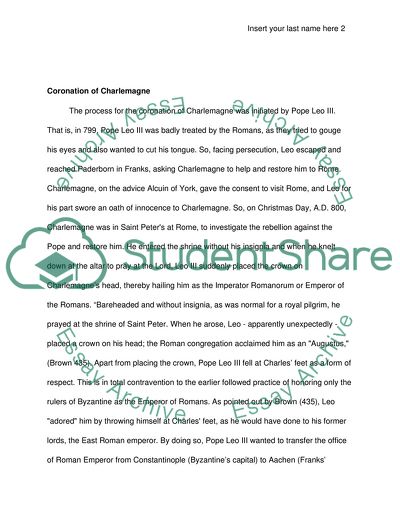Cite this document
(The Process for the Coronation of Charlemagne: the Motive of Acquiring Literature review, n.d.)
The Process for the Coronation of Charlemagne: the Motive of Acquiring Literature review. Retrieved from https://studentshare.org/biographies/1747024-assess-and-discuss-byzantine-reactions-to-the-coronation-of-charlemagne
The Process for the Coronation of Charlemagne: the Motive of Acquiring Literature review. Retrieved from https://studentshare.org/biographies/1747024-assess-and-discuss-byzantine-reactions-to-the-coronation-of-charlemagne
(The Process for the Coronation of Charlemagne: The Motive of Acquiring Literature Review)
The Process for the Coronation of Charlemagne: The Motive of Acquiring Literature Review. https://studentshare.org/biographies/1747024-assess-and-discuss-byzantine-reactions-to-the-coronation-of-charlemagne.
The Process for the Coronation of Charlemagne: The Motive of Acquiring Literature Review. https://studentshare.org/biographies/1747024-assess-and-discuss-byzantine-reactions-to-the-coronation-of-charlemagne.
“The Process for the Coronation of Charlemagne: The Motive of Acquiring Literature Review”, n.d. https://studentshare.org/biographies/1747024-assess-and-discuss-byzantine-reactions-to-the-coronation-of-charlemagne.


